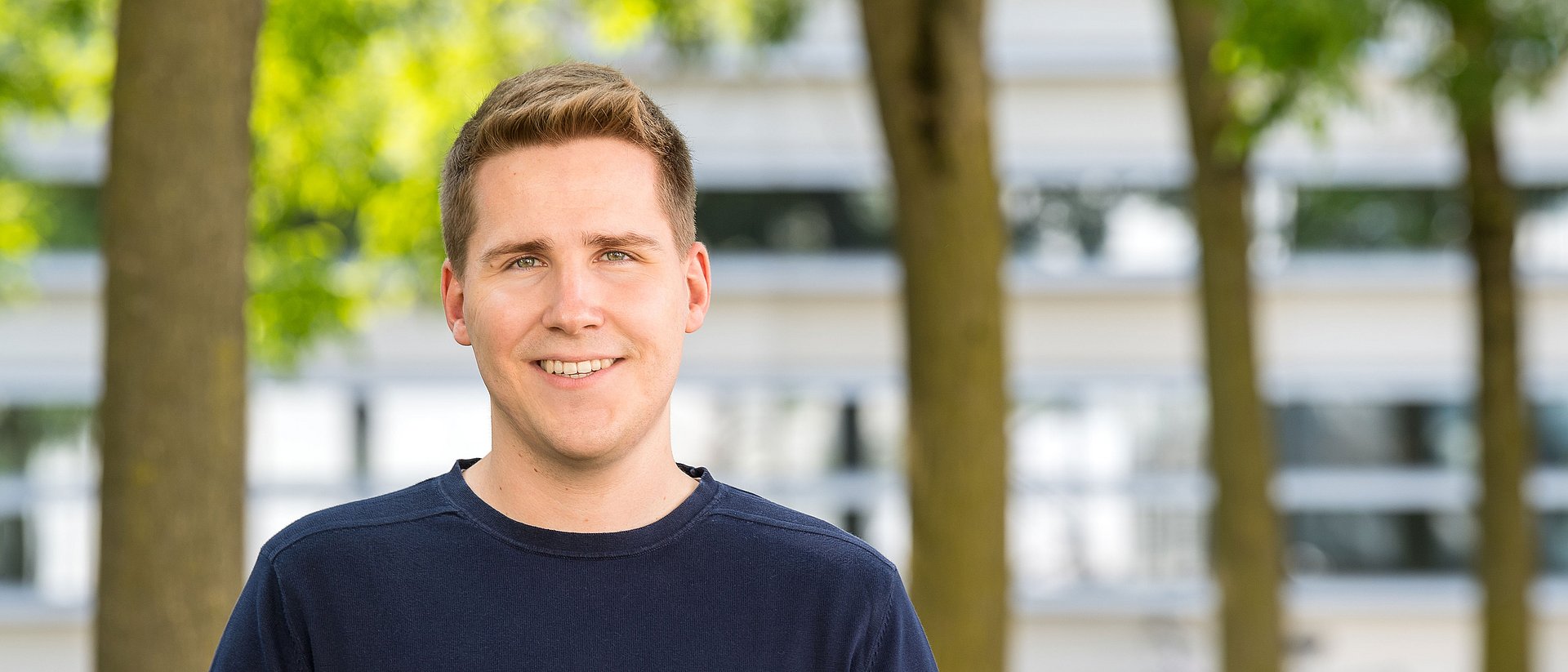Alexander Kophal is part of the Online Tandem at the TUM Language Center
“Sweden just never let me go”

How does an online tandem work?
The idea is to create real situations where we students can use the language we are learning. At present the language courses are all taking place digitally. And in a group of 10, the only time you really have a longer conversation is in a breakout room. A normal course can’t afford to give you the opportunity to speak Swedish for 45 minutes at a stretch. But the idea of having the tandem as part of the language program actually came about before the pandemic – and is now impressively demonstrating its worth.
What do you talk about with your tandem partner?
The tandem isn’t about a little chitchat at the end of your day. It is a graded component of your language course. It was agreed in advance that the topic this semester would be the similarities and differences between Germany and Sweden in the pandemic. We had to discuss questions like: What are the socio-cultural and socio-technical consequences of Covid? What do policymakers need to do to create a resilient society and economy? And what are some typical differences in crisis management in Germany and Sweden?
That sounds rather complex.
During the semester we have three 90-minute sessions. We spend the first half speaking German and the second half speaking Swedish. After about half an hour your brain makes the switch, but then it’s practically automatic.
But how did you get so interested in Sweden?
When I was 14, our neighbors had an exchange student from Tasmania. I was fascinated by the idea of living in a foreign country and learning the language there. But why travel that far? There’s plenty of variety in Europe. The countries are close together but we still have huge cultural diversity. Sometimes it’s nice to get to know your own neighborhood before traveling to the ends of the Earth. There’s also the fact that I grew up in northern Germany. And Scandinavia is practically on our doorstep. So it always felt nearby.
They speak excellent English in Scandinavia. As a foreigner, did you find that people always spoke English to you?
Not really. My host family had four kids living at home. To keep up with them and take part in everyday life, you simply have to learn Swedish. And on my first evening there, my host father said: You want to learn Swedish, do you? Fine! Then we’ll only speak Swedish from now on.
What is the most challenging thing for you when learning Swedish?
The vocabulary changes very fast. For example, the Swedes are much quicker to adopt new words from English. But strangely, they spell the English words the way they are pronounced: for example “fejk” instead of “fake”.
But it’s not a language you can use in a lot of places – unlike French or Spanish.
Swedish is a door opener. It stands out a little. It gets people interested. Especially if you reach an advanced level. Sweden has never let me go since 2012. During my Erasmus semester in Stockholm I also noticed: When you can converse with the locals in their own language, they are accessible to you in an entirely different way.
Would you recommend a language course to new students at TUM?
Certainly. I would highly recommend that. The Language Center offers 17 different languages. I’m now trying out Arabic, for example. My advice would be: Start early in your studies so that you get past the beginners level.
- In addition to the online tandem in his language course, Alexander Kophal is taking part in the “TUM Tandem”, which brings together regular students with exchange students.
- Alexander Kophal wants to keep his passion for Sweden alive – and aims to play a role as a mediator between the two countries in the world of business. He believes that, following Brexit, Scandinavia will become increasingly important to Germany.
- The TUM Language Center offers students, exchange students and TUM employees a university-oriented program for foreign and specialized language acquisition in 17 different language areas, intercultural communication and intercultural discourse in the scientific environment.
- More information: Tandem programs at the TUM Language Center
Technical University of Munich
Corporate Communications Center
- Katharina Horban / Verena Meinecke
- presse@tum.de
- Teamwebsite
Contacts to this article:
Christina Thunstedt
TUM Language Center
Richard-Wagner-Str. 3
80333 Munich
Tel. +49 (89) 289-22135
thunstedt@zv.tum.de